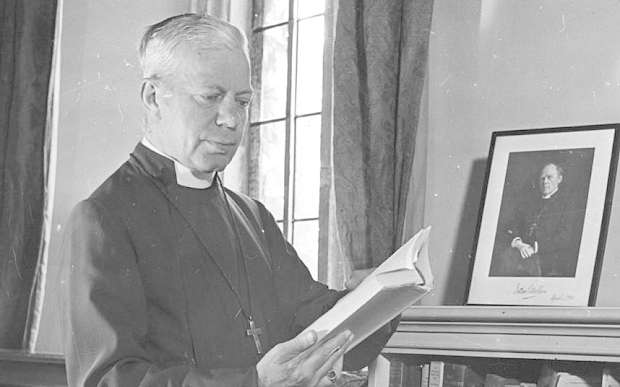In a guest post on the blog Law & Religion UK, 27 October 2015, Michael Ainsworth raises the question over whether the Church should continue to use hymns when their writers have been discovered to have created scandals or committed crimes:
The Diocese of Chichester’s settlement to an unnamed child abuse victim, over 60 years ago, of Bishop George Bell raises the question not only of whether he should retain his place in the Anglican calendar on 3 October – which the Church of England Liturgical Commission has ‘parked’ for future consideration, meanwhile pointing out that this is an optional commemoration which no-one is obliged to keep – but more immediately, whether we should sing his hymn Christ is the King! O friends, rejoice, which many churches will have chosen for Christ the King Sunday as well as for other occasions.
Ainsworth looks at the grey areas of the specific case:
The hymn is fine, and much-loved – as was George Bell himself, until (and even now perhaps despite) these revelations: politically he was progressive and courageous, probably forfeiting promotion to Canterbury because of his principled pacifist stance. Peter Hitchens (who has his own agenda) notes in “Shameful slur on a Christian hero” [scroll down] that because no allegations were made until 37 years after Bell’s death no trial was possible or details made public; and while he has no doubt that the C of E has a lot of apologising to do, queries whether George Bell’s reputation is being too readily sacrificed to save the skin of the Church of England today.
as well as exploring the history of hymn writing and revising in the past based on questions of doctrine, theology, language, politics or parish personality.
Ainsworth’s conclusion:
So to conclude these discursive ramblings: I suggest that the main reason for not singing hymns is the text rather than the author. The same is true of liturgical texts and prayers, and indeed of those who lead worship, as Article XXVI, Of the Unworthiness of the Ministers, which hinders not the effect of the Sacrament, shows – while making clear that in the latter case discipline should take its course:
Although in the visible Church the evil be ever mingled with the good, and sometimes the evil have chief authority in the Ministration of the Word and, Sacraments, yet forasmuch as they do not the same in their own name, but in Christ’s, and do minister by his commission and authority, we may use their Ministry, both in hearing the Word of God, and in the receiving of the Sacraments. Neither is the effect of Christ’s ordinance taken away by their wickedness, nor the grace of God’s gifts diminished from such as by faith and rightly do receive the Sacraments ministered unto them; which be effectual, because of Christ’s institution and promise, although they be ministered by evil men.
Nevertheless, it appertaineth to the discipline of the Church, that inquiry be made of evil Ministers, and that they be accused by those that have knowledge of their offences; and finally being found guilty, by just judgement be deposed.
What do you think?

